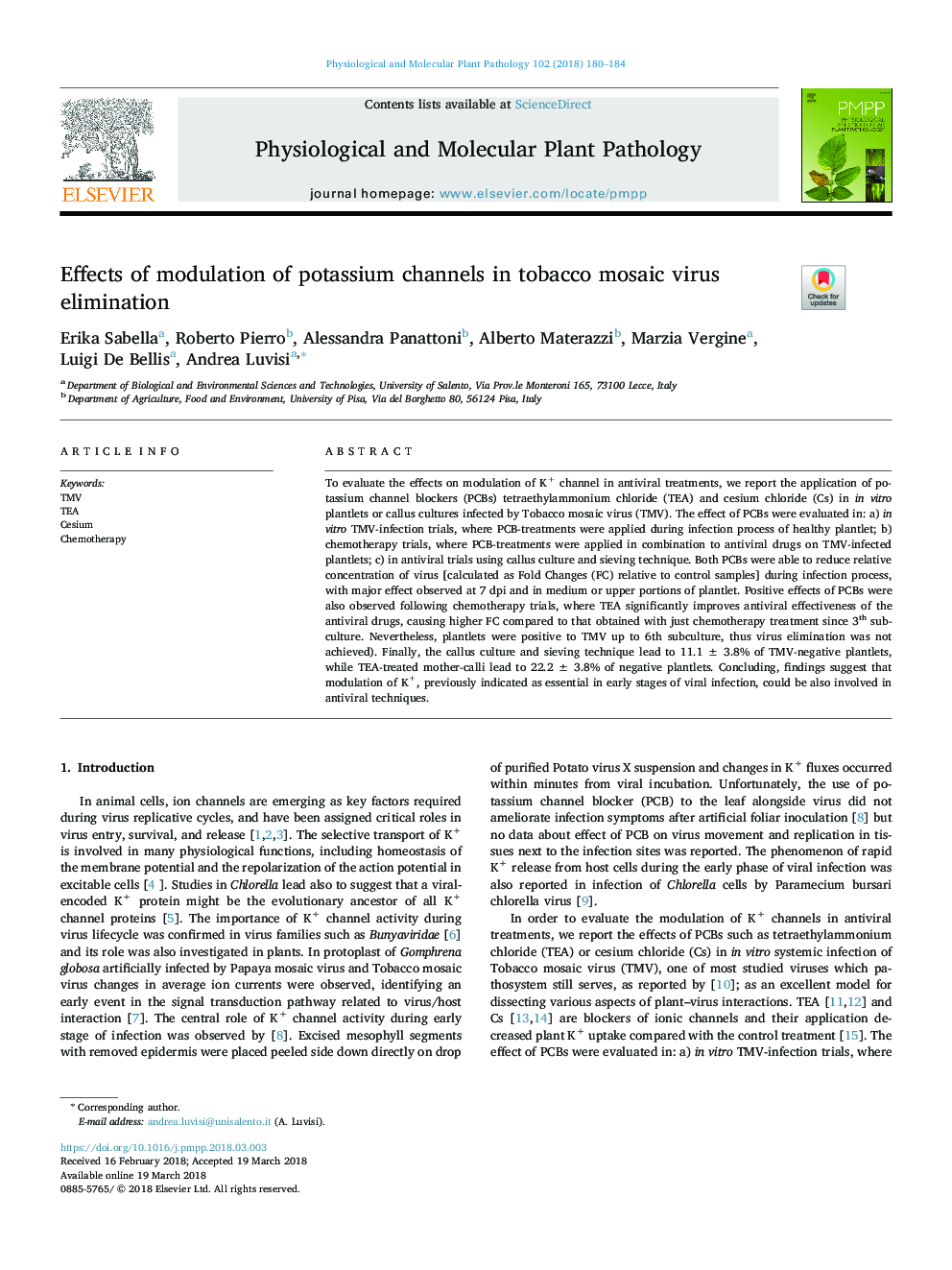| Article ID | Journal | Published Year | Pages | File Type |
|---|---|---|---|---|
| 8649243 | Physiological and Molecular Plant Pathology | 2018 | 5 Pages |
Abstract
To evaluate the effects on modulation of K+ channel in antiviral treatments, we report the application of potassium channel blockers (PCBs) tetraethylammonium chloride (TEA) and cesium chloride (Cs) in in vitro plantlets or callus cultures infected by Tobacco mosaic virus (TMV). The effect of PCBs were evaluated in: a) in vitro TMV-infection trials, where PCB-treatments were applied during infection process of healthy plantlet; b) chemotherapy trials, where PCB-treatments were applied in combination to antiviral drugs on TMV-infected plantlets; c) in antiviral trials using callus culture and sieving technique. Both PCBs were able to reduce relative concentration of virus [calculated as Fold Changes (FC) relative to control samples] during infection process, with major effect observed at 7 dpi and in medium or upper portions of plantlet. Positive effects of PCBs were also observed following chemotherapy trials, where TEA significantly improves antiviral effectiveness of the antiviral drugs, causing higher FC compared to that obtained with just chemotherapy treatment since 3th subculture. Nevertheless, plantlets were positive to TMV up to 6th subculture, thus virus elimination was not achieved). Finally, the callus culture and sieving technique lead to 11.1â¯Â±â¯3.8% of TMV-negative plantlets, while TEA-treated mother-calli lead to 22.2â¯Â±â¯3.8% of negative plantlets. Concluding, findings suggest that modulation of K+, previously indicated as essential in early stages of viral infection, could be also involved in antiviral techniques.
Keywords
Related Topics
Life Sciences
Agricultural and Biological Sciences
Plant Science
Authors
Erika Sabella, Roberto Pierro, Alessandra Panattoni, Alberto Materazzi, Marzia Vergine, Luigi De Bellis, Andrea Luvisi,
